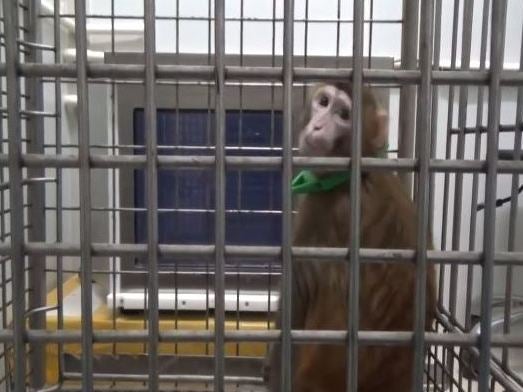More animal research monkeys being 'retired' to sanctuaries rather than euthanised
Primates can live out their remaining years in peace, exploring nature and eating vegetables

More and more research facilities are retiring the monkeys used for animal testing to sanctuaries rather than euthanising them.
Research labs are retiring primates to sanctuaries like Primates Inc., a 17-acre rural compound in central Wisconsin.
At sanctuaries like this one, these monkeys can live out their remaining years in peace, enjoying the fresh air, eating lettuce and carrots, and exercising.
"Just to see them look around in amazement. You know it was all very calm and peaceful," said Amy Kerwin, a former research lab employee who worked for 15 years to get the Westfield, Wisconsin, sanctuary off the ground.
There were approximately 110,000 primates in research facilities in 2017, according to data from the US Department of Agriculture.
While many research facilities require primates to be euthanised to examine their tissues, new technology like brain scans mean fewer monkeys need to be put down.
Researchers who have bonded with the lab animals, like Ms Kerwin, are making more efforts to give the ones who can survive a retirement rather than death.
A group of researchers, graduate students, and an ethicist created the Research Animal Retirement Foundation in 2015 with the goal of raising money for labs to pay the sanctuaries to retire them.
These monkeys require considerable amounts of funding to care for as the animals finish their studies at different points in their lives and can live for decades.
Some primates also leave studies with lingering issues, like compulsive behaviours caused by boredom. Many primates can not return to their natural habitats as they lack the necessary skills to survive in the wild.

The group has given $33,000 (£26,000) in funding for three monkeys that went to the Wisconsin sanctuary.
Join our commenting forum
Join thought-provoking conversations, follow other Independent readers and see their replies
Comments
Bookmark popover
Removed from bookmarks